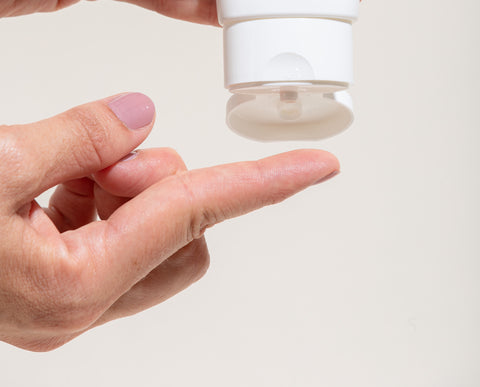Everything about Retinol and how to get started
We have all heard of the skin care ingredient retinol. We all know it's on the shelf and considered one of the most effective topical treatments. After sunscreens, the skincare ingredient dermatologists most often recommend to keep the signs of aging at bay.

Many users have concerns about the use of retinol. Contrary to some beliefs, retinol is perfectly safe to use on your skin. But if you rush things and do not use it properly, it can come with some unwanted side effects.
WHAT IS RETINOL?
Retinol belongs to a group of vitamin A derivatives called retinoids. There are a number of different types of retinoids and they come in different strengths, so it can seem a little confusing if you have never been exposed to the ingredient before.
On top of that, you cannot just apply a retinoid product to your skin. You need to build up a tolerance and gradually incorporate it into your skincare regimen to avoid any unwanted side effects (lower strength retinoids are way more forgiving of course).
Do not let this deter you. If you get it right, experts agree that there is no better ingredient than retinol to smooth skin and fine lines. It's one of the few ingredients proven to visibly reduce the appearance of ageing and is a true all-rounder.
In general retinoids reduce fine lines and wrinkles by increasing the production of collagen. They also stimulate the production of new blood vessels in the skin, which improves skin tone. Other benefits include fading age spots and softening rough skin areas.
6 MAIN BENEFITS OF RETINOL
- Retinol can get rid of your acne
- Retinol can fight signs of aging
- Retinol can help even out skin tone
- Increases collagen and promotes elasticity
- Brighten skin
- Decrease hyperpigmentation
HOW SHOULD YOU USE RETINOL?
Whether in a serum or cream, retinols are best used at night. Many retinols are formulated with moisturizing ingredients to minimize potential dryness and irritation.
Start by applying them at night a few times a week. Once your skin has proven itself, add more retinols each week until you are applying them every night or as directed. Wear sunscreen! during the day, as retinoids increase the skin's sensitivity to sunlight.
When applying, you should first cleanse, tone, and exfoliate (not with BHA or AHA) your face. Do all three steps only if they are included in your current skin care routine. If not then at least cleansing or toning is recommended. Then, apply a small, pea-sized amount of the retinol to dry skin. Spread it over your face, avoiding the eyes and mouth.
However note that with regular use, it takes at least one month or in most cases three to six months to see improvement in wrinkles - the best results are seen after six to twelve months.
WHAT ARE THE SIDE EFFECTS?
Especially during the first two to four weeks of use, retinol may cause dryness, burning, stinging, or peeling of the skin. You can try applying your moisturizer first, followed by your retinol to reduce the absorption rate a bit. Once you find that you can tolerate it, you can go back to applying the retinol first.
People with sensitive skin (rosacea), people who spend a lot of time in direct sunlight and pregnant women should avoid using retinoids. Since your skin has to get used to the retinol, the acne may get worse before it improves. Usually, the side effects only last for a few weeks while your skin gets used to the active ingredient.
It is also very important to choose the right product for you. Start with a low concentration retinol. If you want to treat deeper issues like fine lines and sun damage, you may want to opt for a higher percentage. A good place to start is with a product containing 0.5% or 1% retinol. For very sensitive skin, there are even products on the market with 0.1% and 0.2% retinol.
More mature skin may need stronger products, such as tretinoin and retinoic acid. These can be up to 100 times stronger than over-the-counter retinol products. However, if you are looking for preventative care, it's best to start with gentler retinol before working your way up.
